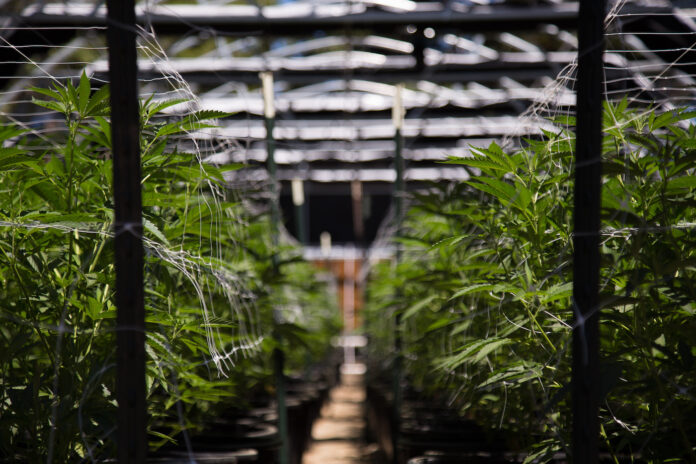SACRAMENTO – California Governor Gavin Newsom signed a new bill into law that will restructure the state’s adult-use cannabis program, eliminating a cannabis cultivation tax to relieve the ever-growing market prices and pivot consumers away from illicit resources.
The new law, known as AB 195, was crafted to address the government’s desire to fix a years-long problem with California’s cannabis program. AB 195, which passed with nearly unanimous support, will shift the cultivation tax currently placed on growers to a 15-percent point-of-sale excise tax that is capped at that rate for the next three years. Originally, Newsom proposed an eighteen-month cap.
The legislation also will take more direct steps to sway consumers away from the illicit market by bolstering violation enforcement against illegal operators with a $10,000 per-violation-per-day fine for landlords who knowingly lease to illicit manufacturers, retailers, and distributors. Additionally, the law offers social equity operators $10,000 in tax credits; they’ll also be eligible to keep 20 percent of the excise taxes they collect for investment in their businesses. Another $20 million in tax credits is earmarked for microbusinesses and retailers.
For advocates, lobbyists, and industry experts throughout the state, the move is long overdue and a welcome step in the right direction.
“I’m celebrating,” California Cannabis Industry Association lobbyist Amy O’Gorman Jenkins told the North Bay Business Journal. “The legislature seems to have grasped a lot of what’s affecting the cannabis industry. More work needs to be done, but I see this as a big win. To critics, I say this is a significant first step.”
Industry members believe the new law is a largely positive amendment to California’s legal cannabis program, especially where growers are concerned. Several analyses revealed eliminating cultivation taxes could have a significant impact on overall revenue for both the industry and state. According to Geoffrey Lawrence’s report for the Reason Foundation, “If the cultivation tax is eliminated and no other changes are made, total monthly state revenue from taxes on cannabis transactions by December 2024 will be more than double their March 2022 level.”
Revenues aren’t the industry’s only concern. According to a group of California growers, a collapse of the state’s cannabis industry could have wide-ranging consequences.
“Failure to appropriately reform the industry’s tax structure will create an avalanche of adverse consequences,” they wrote to the Sacramento Bee in May. “These losses will include the elimination of thousands of union jobs as businesses close, leaving working-class people unemployed; the shuttering of social equity businesses; the continued risk of consumers accessing untested, contaminated products; the proliferation of dangerous cartels; and the lost opportunity to use cannabis tax revenues to subsidize critical services like childcare vouchers, programs for the working poor, and youth harm reduction.”
In some ways, California has been a prime example of what not to do in legal cannabis. Wholesale prices reportedly dropped as low as $250 in April from an average of around $1,000 per pound a year ago, making it challenging for legal operations to compete with the state’s illicit market that’s estimated to generate $8 billion in annual sales—twice the volume of the legal market, according to Politico. If successful, AB 195 may help other states avoid the same fate in the future.
“The legislation invests in our core values at a pivotal moment,” said Newsom. “Building a better future for all, we’ll continue to model what progressive and responsible governance can look like, the California way.”
The law takes effect immediately.













[…] 1, California’s cannabis excise tax will rise from 15 % to 19 %, the results of a deal struck three years in the past between elected […]
[…] business expense deductions to offset the effect of Internal Revenue Code Section 280E, which may provide some minor tax relief. “If [states are] going to legalize [cannabis], why the hell should they not allow normal […]
[…] some protection of the regulated market and enforcement of the illicit market. That’s been the biggest challenge in California, having a thriving illicit market. I think there’s news out there that [stabilization] is in the […]
[…] continues to serve as the primary provider of unregulated cannabis throughout the United States. California’s high tax rates and municipal bans on cannabis retailers have made it difficult for the legal market to supplant […]